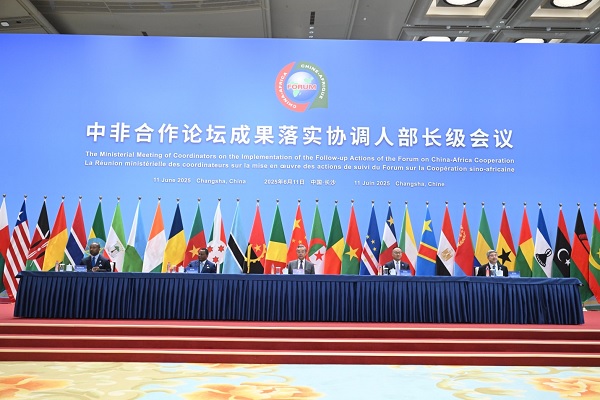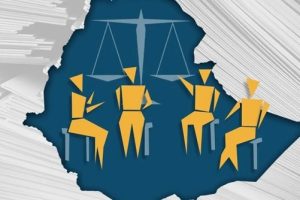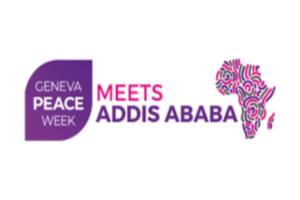
Mostly Ethiopians used proverbs like “many hands make light work,” meaning unity is a power. This principle is not merely a myth; it has been used practically throughout the ages. A prime example is the historic victory at the Battle of Adwa in 1896, when Ethiopians defeated the Italian army, despite facing a force equipped with modern arms.
This triumph was not just a national achievement; it served as a beacon of hope for African and Black people across the globe. Since the victory of Adwa has inspired countless others to rise against colonial powers, reinforcing the standing of sovereignty and self-determination.
Currently, as Africa faces various internal and external challenges, the spirit of unity remains crucial. By coming together, Africans can bounce to prioritize and strengthen their partnerships to ensure sustainable development across the continent.
The challenges that African nations face ranging from terrorism and climate change to civil wars and political instability and others. The threat of terrorism looms large in various regions of Africa, undermining not only peace but also economic progress. Countries must work together to share intelligence, resources and strategies to combat extremist groups. Joint military operations and collaborative security frameworks can help restore stability, allowing communities to thrive without the fear of violence.
Ethiopia is committed to enhancing military cooperation with neighboring countries and other African nations to foster lasting peace through conflict resolution. Furthermore, the country is collaborating with the African Union (AU) to support peacekeeping missions in the East Africa region, such as AUSSUM in Somalia.
Moreover, AU attempts to play a pivotal role in mediating disputes and promoting good governance. By establishing frameworks for dialogue and conflict resolution, African nations can work together to create a more stable political landscape.
Additionally, climate change poses another significant challenge, affecting agriculture, water supply, and health across the continent. African nations must engage in cooperative efforts to mitigate the impacts of climate change by investing in renewable energy, sustainable agricultural practices, and conservation initiatives. Collaborative research and technology sharing can enhance resilience and foster sustainable practices that benefit all nations.
In this regard, Ethiopia is playing a leading role by planting billions of seedlings to combat the impacts of climate change, both on the continent and globally.
Furthermore, countries should invest in cross border infrastructure projects that enhance trade and connectivity. Improved transport networks and communication systems will facilitate economic growth and foster regional integration. By incorporating these voices into the development discourse, African nations can build more inclusive and effective strategies for sustainable growth.
Not only the nations but also the continent should strengthen the partnership with other wealthy nations to aimed to foster the progress of the continent’s sustainable development.
In this regards, recently the 2025 Forum on China–Africa Cooperation (FOCAC) Ministerial Meeting in Changsha marks a significant milestone in the evolving partnership between Africa and China.
This meeting showcased the significant progress achieved since the 2024 Beijing Summit, with over 35 specific outcomes announced across 10 major cooperation initiatives.
Backed by nearly ¥130 billion in financial commitments and an additional ¥140 billion in risk insurance, these outcomes highlight the expanding depth of China’s engagement with Africa.
The partnership now spans essential sectors such as renewable energy, agriculture, digital finance, governance, and artificial intelligence, all vital for Africa’s long-term development.
Within this context, Ethiopia has emerged as not only a dedicated participant but also a prominent voice in shaping the continent’s strategic direction.
Foreign Minister Gedion Timothewos, in his address to the FOCAC assembly and subsequent comments in Addis Ababa, emphasized the tangible benefits that African nations have reaped from the FOCAC framework.
He commended the platform for producing measurable outcomes in infrastructure, education, and industrial support, moving beyond mere diplomatic talk. Gedion characterized FOCAC as a mechanism that enables Africa to pursue development paths based on local priorities and ownership rather than relying on external guidelines.
His message also conveyed a sense of urgency. Gedion stressed that Africa’s engagement must keep pace with China’s ambitious implementation of partnership goals.
While China demonstrates strong political will and financial commitment, African leaders are urged to respond with coherent policies, faster implementation strategies, and a stronger focus on mutual benefits. He argued it is not just about diplomacy; it is a strategic necessity for Africa’s economic future.
Central to Gedion’s remarks was the idea of mutual benefit in future cooperation. He highlighted the need for arrangements that ensure both sides gain from investments. Chinese investments should significantly contribute to Africa’s human capital, technological growth, and job creation.
In exchange, African nations must establish frameworks that promote transparency, accountability, and long-term sustainability in joint ventures. Ethiopia particularly advocates for an engagement model that respects African agency and ensures outcomes reflect true partnership rather than one-sided advantages.
Ethiopia’s prominent role in this developing relationship is both significant and longstanding. As the headquarters of the African Union and a founding member of FOCAC, Ethiopia has positioned itself as a bridge between the continent’s needs and global partnerships.
Its ambitious infrastructure projects and commitment to regional integration serve as a model for leveraging FOCAC initiatives effectively. Gedion’s focus on agriculture, connectivity, and peace infrastructure illustrates Ethiopia’s readiness to pilot innovative cooperation models that could be replicated regionally.
Looking forward, Ethiopia is well-equipped to translate FOCAC commitments into visible development results. Its institutional strengths, strategic location, and coherent policies provide a robust foundation for deeper collaboration with China.
Fostering models of shared ownership, Ethiopia can ensure that investments yield local benefits while also providing stability and returns for its Chinese partners.
As the outcomes of the 2025 FOCAC affirm, China-Africa relations are evolving into a phase characterized by practical achievements and mutual expectations. Ethiopia’s leadership at the Changsha meeting and Gedion’s assertive diplomacy reinforce the importance of African initiative in shaping this partnership. As FOCAC continues to evolve, Ethiopia stands out not only as a beneficiary of cooperation but as a key architect of its future direction.
The challenge now lies with African leaders to engage with China in a balanced and visionary manner, securing Africa’s role as a proactive partner in an interdependent world.
BY FIKADU BELAY
THE ETHIOPIAN HERALD TUESDAY 17 JUNE 2025



